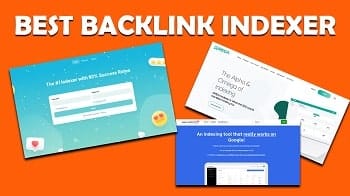Thinking about starting a new blog? Superb idea! These blogging tips for beginners with a new blog will definitely help you.
But, how to start a new blog?
Are you aware of the basics and needful to be done to start a blog?
The Internet is full of valuable information on this, and everyone is telling you to do different things.
Let’s get real.
Starting a blog is not a big deal, managing it and coming up with valuable content to get the traction is.
Adding new, fresh, informative, and valuable content to your blog is very crucial if you want to get some traction with your blog.
Search engines have gone too smart for manipulating them to earn the traffic and rank.
The rule is simple if you want to rank well and get traffic to your website, follow the webmaster’s guidelines for SEO and content marketing best practices for making your content a hit among the readers.
Here in this article about blogging tips for beginners, I have compiled a list of some crucial blogging tips for beginners that include the hacks to improve on SEO as well as usability in front of your content.
By following these blogging tips for beginners you can thrive with your new blog, getting more traffic, generating social Shares, and acquire leads for your business.
1. Choose the blogging platform that suits you
If you have not started your blog and still thinking about it, you will need to proceed in real context by first choosing a blogging platform.
Choosing a blogging platform is kind of a big deal for a beginner blogger. If you end up with the wrong choice it will all be a mess after that.
However, answering these questions to yourself would help in making the correct choice:
- Do you want a hosted or self-hosted platform?
- Are you a hobby blogger or want to start a professional blog?
- Any intention for the advertising revenue generation model?
Selecting a hosted or self-hosted platform is a big decision to make.
You need to decide at the very beginning itself, as it will determine if you want to pay for your blog or grab a free one.
There are various blogging platforms that accommodate free blogs. WordPress, Tumblr, and Blogger are a few popular names.
It’s a good choice for those who are blogging for hobby and do not want to professionalize it.
However, it has few downsides too:
- Your blog won’t have a domain name of your choice.
- It would have an URL something like this “yourblog.wordpress.com”, “yourblog.blogspot.com”.
- Access is limited, you can’t monetize your blog.
- You don’t have the permissions to upload as many images or videos in your content.
- You will use a default theme provided by the blog; can’t use a custom theme.
On the other hand, a self-hosted blog on your own domain allows you to:
- Give a name to your blog “Yourblog.com”, “mysuperblog.com” etc.
- Host the blog on any web host
- Customize the blog’s look and feel by installing a theme
- Monetize the blog by showing ads
- Install plugins to add new features etc.
I am a WordPress fan, I would always choose self-hosted WordPress for starting my own blog.
However, I might consider looking at other blog platforms like Drupal for building a massively huge blog with an active community on it.
Here is an infographic from Pingdom that shows the percentage of top blogging sites using different platforms.
WordPress is the most popular and holds a 48% share.
 2. Set defined business goals with your blogging
2. Set defined business goals with your blogging
If you blog to promote your company and it’s products and you are professionally into content marketing, always define your business goals first.
The business goals perfectly blended with information and value to your customers will not only popularize your content but would also generate the leads from the target readers.
Your blog should have a clear answer to these questions before starting your business blog:
- Can you answer “Why” you are writing?
- “Who” will read your contents?
- “What” value your content has for the readers?
- “What” are the key performance metrics you want to achieve for your blog?
- “What’s” your call-to-action for the readers?
If you can answer these questions clearly, you are all set to start your blog associated with your business.
Look at these sample answers to the above questions, for understanding their importance:
- I am writing for sharing information and news about SEO and promoting my SEO services with the content.
- Website owners searching for SEO tips, news and all solution to SEO related problems will read my blog.
- Latest SEO News, SEO trends, tips, hacks, and tricks that I have learned from my experience as an SEO consultant.
- I will track the Pageviews, social shares, new vs repeat traffic, Traffic sources, backlinks, Interlinks, bounce rate, Click-through, etc.
- I will ask readers to contact us for SEO consultation, share their views in the comments, ask questions regarding the content, etc.
3. Install Google Analytics to measure key metrics
You cannot run a blog without knowing who is visiting your site, which section of readers is being attracted, how they are visiting, etc.
The information can be easily found by tracking some key metrics on your blog using the Google Analytics tool.
You can use Google Analytics to set up conversion goals that can measure how often the visitors are performing specific actions.
These actions could be subscribing to newsletters, free e-book download, or registering for an event, etc.
By tracking the following key metrics, you can keep a look at your blog’s performance and do the needful if required.
- Visitors count- New and Repeat
- Traffic sources
- Bounce rate
- Exit pages
- Conversion rate
- Top pages
4. Content topic generation is not that tough
Ideally, experts recommend preparing a list of all the topics you are going to write about during a particular period.
You don’t need to go in deep and write the final headlines for posting; just list them down with a general idea. You can later optimize the headings for posting.
In this way, you will have plenty of topics before you even start writing.
How can you generate the topic ideas?
When you cannot think of what you should write about, you can follow this simple approach to come up with viral ideas:
Create a Spreadsheet that will serve as your idea bank. The headlines of the sheet should look like this:
-
Analyze your business and products
You must understand that blogging is not a direct sales tool, You have to be very specific about the topics that you choose to promote your products and services.
These kinds of contents generally get the attention of a narrowed section of the readers.
However, even with this narrowed attention, you can still get sufficient ROI by explaining simple facts
– Explain why this product fits the content?
– Explain how this product solves an issue?
– Explain why not your competitor?
Brainstorm these questions, and note down the answers. You can later formulate these questions and answers into a perfect headline.
-
Get content ideas from your popular blogs
The best way to know what content will perform best on your blog is to analyze the old contents that have already performed well.
Analyze the posts, note down the category in which they were posted.
You can then use this casual idea to generate some content headlines using the Hubspot’s Blog Topic Generator.
You can also use another similar Blog Title Generator by seopressor. Just enter your key term, and select the keyword type, and you will see loads of headlines related to your keyword.
-
Get inside the heads of your competitors
Competitors are always believed to work against you. However, in blogging, you can make them work for you.
Stalk your competitor’s blog and see what they are writing. It’s not wrong to tap into what already worked for them.
Track their top contents and write on similar topics by researching and adding up lots of more information that has not been given in their piece.
It is the easiest way to generate great content ideas by putting some effort from your side and getting the rest from your competitors.
-
Get inside the heads of your target audience
I have seen many of beginner bloggers easily ignoring this point. It always amazes me how bloggers ignore the pain points of the target audience, even if they are writing to convert those same people.
Ignoring these people is never the best option for your blog’s present and future. Track your target audience by using every means you can think of.
I can think of these areas that can help to get the insight:
- Track blog comments
- Track Quora questions, answers, and comments
- Track Niche forums
- Track social activity
In all this tracking, you need to discover the answers to these three questions:
- What questions are they asking?
- What is the issue they are facing?
- What do you have to help them?
After completing these four steps, you will have a heap of raw data that can be easily converted into blog topics that can perform really well.
5. Develop your own editorial calendar
Most of the new bloggers ignore the use of an editorial calendar as they find it burdensome to manage.
Especially those who are blogging just for the sake of blogging.
By missing the editorial calendar for your blog, you try to avoid facing the truth behind various other aspects that you have ignored.
If you don’t use an editorial calendar, you might probably be also ignoring the following elements that are generally updated in an editorial calendar itself:
- Publish date
- Author Name
- Target keywords- Primary, Secondary, and Tertiary
- Topic/headline
- Short pitch
- Published link
- Social posts and sharing on- Facebook, Twitter, LinkedIn, Pinterest, etc.
You must always follow an editorial calendar even if you are blogging as a hobby.
It will help you to keep a track of your published content, where they are posted, where they are linked to, target keywords and so many things.
Ideally, you must create your own editorial calendar (On a Spreadsheet or a Google sheet), however, you can also download, customize, and use the editorial content templates from various websites for free.
- Editorial calendar template from Hubspot
- Editorial calendar template from CMI
- Other editorial calendar templates
Also Read: Top 10 Benefits of Blogging on your Website!
6. Write with correct keywords
After coming up with your huge list of topics and headlines, the next important task should be “keyword research”.
Find out which keyword or phrase is most effective and common with your target audience.
You can do it easily with your Google Keyword Planner.
While researching for the same, you must try to focus more on long-tail keywords with lower competition.
Don’t forget to relate those keywords with your blog’s content.
Here, we could have targeted “Men’s jeans” as it has a quite abundant search volume.
But, competition on short-tail keywords like this is extreme, it nearly impossible for a new website to come on the first page with short tail keywords.
Instead, we targeted the “long tail keywords” for the exact match.
Here it’s more likely to rank on the first page or even the top rank with exact matches.
Despite we would have only 100 -1k search volume in a month, out of that even the 10+ conversions would be a huge win.
Rather than struggling to come on the first page with short tail keywords focus on long tail keywords and earn better conversions.
Free resources: Most Efficient Keyword Research Tools
To Conclude
If you are thinking about starting a blog, you probably don’t need a lecture on how to write a blog. Instead, a simple guide to set up your blog and basic SEO would be more helpful.
That’s why I have excluded the typical writing tips that you can always find on the internet.
Instead of “how to write a blog”, here I have tried to put forward those points which are generally not included in typical blogging tips article.
These blogging tips for beginners will help you to set up a perfect platform for your blog, where you will be all set with loads of ideas, keywords, and plan to launch your new blog.
In addition to this, staying in touch with an SEO expert is a recommended choice to have someone who can carry your awesome content to your readers in a shorter time.
Moreover, don’t forget to pay special attention to your website design if you want to look professional and user-friendly. Consult a WordPress development company if required.
More Related Posts
Get more Traffic to your Blog without relying on Search Engines
7 Smart Ideas to get an Eye on your Blog
Ways to Make More Money as a Blogger

















Your SEO information is helpful for me. Thank you for your posting.
Thank You
I just love to read new topics from you blog.:”:’